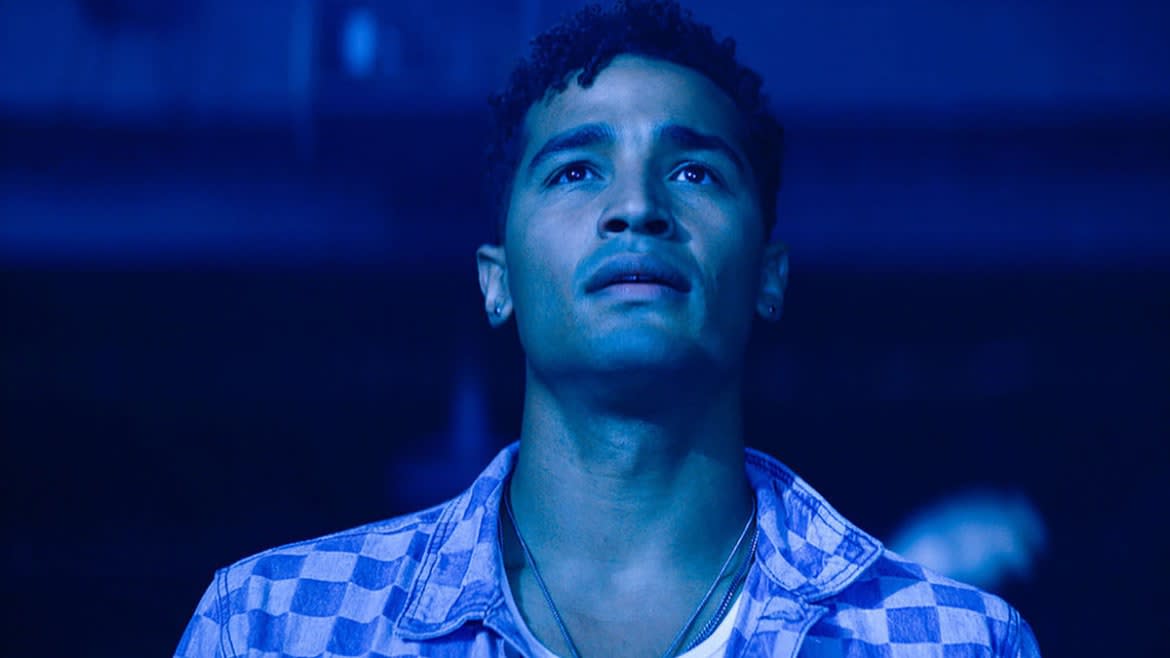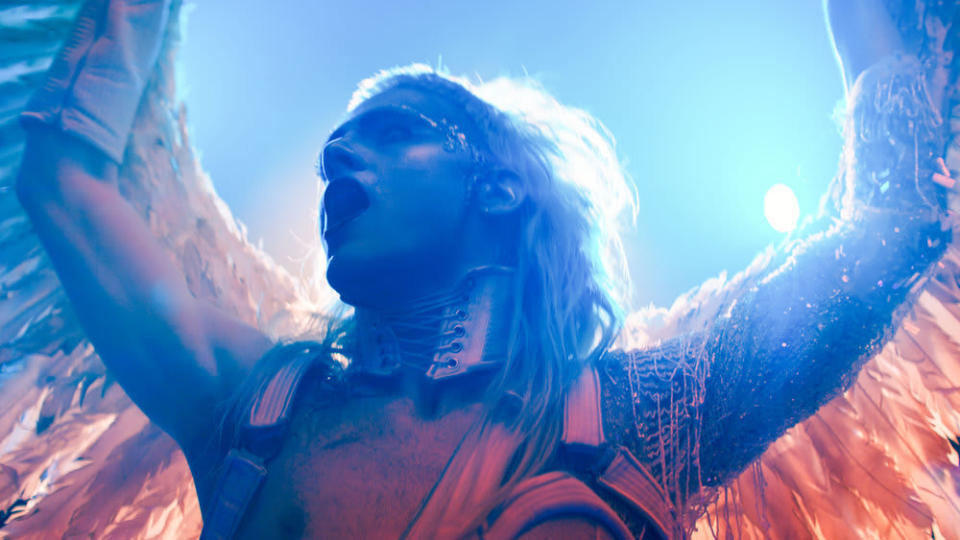What the ‘Queer as Folk’ Reboot Gets So Egregiously Wrong

Once the home of RuPaul’s Drag Race long before cishet approval coaxed a mainstream debut on VH1, Logo was the only channel that many gays could rely on for sanctuary from the perpetual onslaught of heterosexual pop culture. That’s how so many of us found out about—and then became obsessed with—Queer as Folk.
Sure, some of that might be owed to its gratuitous depictions of gay sex, but also to the high-caliber drama and storytelling that earned it five angsty, groundbreaking seasons on Showtime. Now the show has joined a score of television classics that have gotten made over for a modern audience.
As someone who grew up watching the original in secret and is now the target audience for the remake, I tenuously hoped the remake would give me the gritty, cruel dramedy of the original with characters and stories that could actually provide a wider audience with self-image.
But like other reboots of its kind, The L Word: Generation Q and And Just Like That to name a couple, the show relies on the relative diversity of its cast too much to focus on constructing plots that aren’t entirely constituted of the characters’ marginalizations—or that even remotely resemble the delightfully blue, existentially dreadful world we could lose ourselves in.
Now that the season has premiered on Peacock and people have had time to binge through its eight episodes, I have thoughts.

Returning to his native New Orleans after some time away lolling around medical school in Baltimore, Brodie Beaumont (Devin Way) is looking to repair relationships eroded by his absence. By day, the city is drenched in warm filters and characters fond of millennial pink. By night, the streets drip with glitter and confetti.
The sanitized aesthetic registers subtly as PR, a kind of damage control that uses the pleasant feeling of brighter color schemes to indicate that these franchises have indeed turned a corner. Long gone are the days of pale, heroin-chic lesbians like Shane and Jenny from The L Word, or the neutral-toned wardrobes donned by lily-white Justin Taylor from the original, twink-worshipping Queer as Folk.
Brodie is this version’s Brian Kinney, the smoking-hot Narcissus of the original. Traveling the streets of a city in perpetual revelry, Brodie makes his arrival known to those most important to him: his white, affluent adoptive family made up of his mother, a coy Southern socialite played by Kim Cattrall; his brother Julian who lives with cerebral palsy played by the charming Ryan O’Connell; and his father Winston, who largely remains a pasty specter of the isolation Brodie feels as the only Black person in his family.
‘Queer as Folk’ Has a Lot to Say, and a Lot of Hot Sex While Saying It
Judging by the way he breaks into his own house through a window, they’re surprised by his return and scrutinize his motives. He jumps into a Jeep and pays a visit to Ruthie (Jesse James Keitel), his best friend since youth, and Shar (CG), Ruthie’s partner, who used Brodie’s sperm to conceive twins and start a family of their own.
Brodie keeps making his rounds, also stopping by his ex-boyfriend’s house, unknowingly interrupting a meth-fueled tryst between Noah (Johnny Sibilly) and Brodie’s best friend, Daddius (Chris Renfro). If there’s one cue this version takes from the original, it’s the eagerness to depict the flashier ins and outs of gay sex lives.
They all eventually make their way to Babylon, a popular gay club where we see Mingus (Fin Argus), the spiritual successor to the original’s Justin, a skinny high schooler with no qualms about his gender fluidity and a penchant for glam-rock drag. But in the middle of what is supposed to be a showstopping performance, an unidentified gunman steps into the club with a semi-automatic rifle and opens fire. The lights shatter and things go dark.
It’s obvious that this was inspired by the Pulse nightclub shooting that took the lives of 49 people back in 2016. Most of the victims were gay and queer Latino men, which discourse around the tragedy and the issue of gun violence rarely acknowledges. As someone who belongs to that community that was so despicably targeted, it does give me pause that a show with virtually no Latino representation (save for the ethnically-ambiguous Sibilly as Noah) would use such violence as creative fodder.

Daddius dies in the attack. Afterward, Brodie and his friends are left with a looming dread that nevertheless motivates them to fight for their right to party. In the tradition of gay communities and our seeming disposition toward a good rager, they resolve to continue the fun they once had at Babylon by hosting parties and orgies at Noah’s spacious duplex, while Brodie and Ruthie can’t stop masturbating. It’s fascinating what trauma does to your libido.
It’s painfully clear that the show has a message (or a dozen) to send. It wants you to feel as guilty as the producers who want to make up for the original’s aggressively narrow-minded depiction of gays and our communities. While I clearly adore the original Queer as Folk and other shows of its time, it was never lost on me that the spectacular breadth of queer experiences was, at best, reduced to just a footnote in a greater white-obsessed narrative, or a callously bigoted punchline at worst.
Still, after the initial surprise has settled, I wondered why I’m still invested in a show that often feels like it’s motivated by nothing other than guilt over past sins. The moody atmosphere, seedy exchanges, and fuzzy, cool-toned panorama of existential dread that made the original so enticing are now gone. But so is the tunnel vision on Eurocentric beauty standards and upper-class ennui.
Can We Talk About the Kim Cattrall Lesbian Sex Scene in ‘Queer as Folk?’
I want better for us. We’re in an age of reboots that bulldoze over entire franchises just to plant marginalized characters in narratives loosely based on originals, as if that were the key to novelty. Whether it’s racial minorities or LGBTQ communities, we deserve to have new stories—stories that win attention through the delightful theatricality of queer life, through the wisdom we find between a rock and a hard place.
We shouldn’t need to piggyback off the faded glory of white television to get the recognition, support, and acclaim we deserve for the tales we need to tell. I definitely cried as people limped away from the shooting. But to get caught up in the happy-go-lucky optics of the reboot age is to be complicit in getting these networks the ratings and image of social awareness they want—without making them work for it first.
There’s no point in making yet another laundry list of experiences that need to be represented on screen. That sort of discourse is what got us into this mess in the first place.
As characters dish out clunky platitudes I’ve seen in cutesy Instagram infographics since high school, I’m reminded that Hollywood still hasn’t realized that the key to fulfilling stories isn’t simply replacing white or privileged characters with their downtrodden counterparts. Storytellers need to start asking themselves what genres can do for us.

What I needed was a Queer as Folk rendition that used the frigid, nihilistic engine of the original to explore plot points that should have been more salient. I wanted to feel more of Noah’s addiction—a reality that many Latino men and other men of color encounter—to better understand how something like ethnicity impacts one’s proclivity to substance abuse.
I wanted a more realistic take on gay sex, as opposed to the unfeasibly prep-free encounters Hollywood wants to think we enjoy, and how this aspect of our sexuality often leads to embarrassment and frustration. I wanted a show rightfully focused on sex to deliver characters that were more introspective of fetishization, a woefully common occurrence not at all inconsequential in the lives of Black, Latino, and Asian gays.
Instead, all I got was a twink with a BLM trampstamp (that Brodie screws anyway). I want a show that doesn’t use a real-life tragedy as a plot device that ends up humming awkwardly in the background for the rest of the season.
By replacing the beloved cynicism of the original with a felicity so crushing it can’t truly stand up to the more fraught aspects of our communities, Queer as Folk ends up making the brutal—but necessary—truths of racialized, queer life as disposable as ever.
Get the Daily Beast's biggest scoops and scandals delivered right to your inbox. Sign up now.
Stay informed and gain unlimited access to the Daily Beast's unmatched reporting. Subscribe now.

 Yahoo News
Yahoo News 
